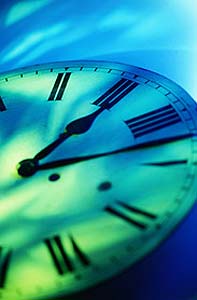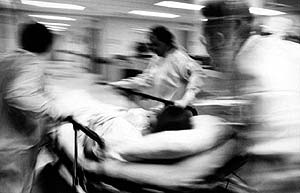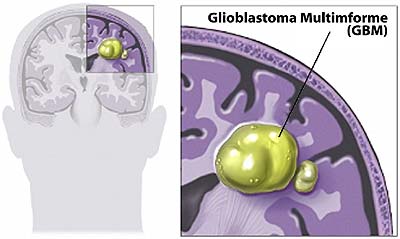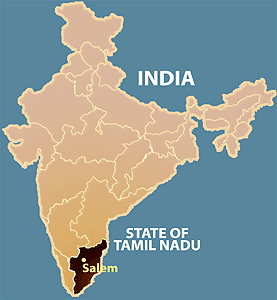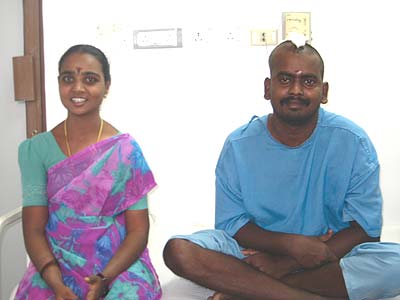 |
 |
 |
Volume
6 - Issue 04
APRIL - 2008 |
Seven Tense Hours… and the Triumph of Life By Mr. Y. Arvind It was 6.00 am in the morning when the vehicle drove up to the emergency department of SSSIHMS, Whitefield. The patient was smoothly transferred onto a stretcher, brought in, laid on the bed and connected to medical support systems. One look told the clinicians that he was all but gone; all vital signs were at their lowest ebb and there was no response to stimulus. The doctor picked up the patient response sheet, and began writing down the observations. The final score for this patient suffering from a neuro condition was an abysmal ‘3/15’. In clinical terms, he was at the threshold of the Grim Reaper’s call.
Turning to the young wife, who had just finished the formalities of admission, the doctor said, “We have to perform surgery today.” The eyes widened. “This is a high risk condition; we will need your consent to go ahead with the surgery.” “Consent?” “Permission. We need to have your permission to do the operation,” explained the doctor, simplifying. The eyes vacillated. “Will he….survive?” she asked hesitantly. “We cannot guarantee you that. The chances of survival for any patient in such a condition are less than 2%. If we operate he may survive, if we don’t we will definitely lose him.” Consent to Life
The words were delivered with practiced efficiency, equivocal and final. There was no choice; the slimmest chance of life against the certainty of death. She looked at the inert form of her husband who meant everything to her, up at the blinking screens that told her nothing, into the eyes of the doctor and the nurses surrounding them, and then again at her husband. Less than fifteen minutes ago her husband had been admitted and now … she had to decide. The life or death of her husband lay in her choice… her consent. Sensing her confusion, one of the sisters quickly read out the consent form translating it into Tamil, the language of the couple. The face of the young woman blanched, but she understood that there was, in reality, no choice. Death was certain, but the chance of life remained. Uma, the young wife of Dorai, picked up the pen that lay on the table and initialed the high risk consent form. The clinical staff got into action, and for an hour he received their attention. Intravenous drips were attached, syringe pumps sent calculated doses of inotropes (drugs to support a failing heart) into his blood stream, and the monitors blinked and beeped telling the professionals what they needed to know. In an hour’s time, surprisingly, his score dramatically improved to 7/15. “We can move him now!” said the doctor. Seven Hours to Save a Man He was taken for a CT scan, and then moved to the Operation Theater. She could only walk silently, her tears coursing down ebony cheeks, as her husband was efficiently hooked up to mobile life support systems, and wheeled out into the vast corridors. The lift doors opened and they crowded in around the wheeled bed.
The hum of the machinery did nothing, but strike at her already taut nerves. The doors opened onto the second floor into a long corridor, lit at intervals. The shadows waxed and waned as her husband moved under them, inert and silent. They came to a pair of double doors. ”Wait here”, said the staff nurse. Uma watched him disappear behind glass doors. After all the bustle of admission, evaluation, diagnosis and discussion, the silence fell again as a heavy cloak over all of them. There was nothing to do, but wait. Seven interminable hours later when Uma had all, but shed her last tear, the doctor emerged from the theater complex. The anxiety was writ large on the faces of those accompanying Uma. “He has survived the surgery. He is now in the intensive care unit under observation. You can see him in the evening during visiting hours.” The tired smile on the face of the doctor was worth all the wealth in the world to the young wife and the mother of two. New Neuro Paths One week later Dr. Ravi Dadlani, walked into the neurosurgery ward and approached the bed of a 30 year old male patient who was looking out of the window in a reverie, having survived Glioblastoma Multiforme (GBM) – an aggressive form of brain tumour. Seeing the doctor he quickly came to attention and sat up on the bed.
“How are you feeling?” The staff nurse translated. “Much better, thank you,” replied the patient. “Are you able to eat well? Can you move your arms and legs?” “I am able to walk, doctor.” “Show me.” The patient swung his legs off the bed, laid them firmly on the smooth polished brown granite floor of the ward, and raised himself from the bed, the orderly moved forward, but the man motioned him away. Holding himself erect, he walked to the end of the cubicle, and returned to his bed. The doctor finished making his notes and smiled the terse smile behind which doctors train themselves to hide their satisfaction. “Good, keep up the exercise and medicines, things will improve.” The doctor moved away from the bed and told the staff nurse, “That’s what I would call a medical miracle. Within six minutes of being extubated (out of the life support systems) in the ICU, he started speaking! He was fully coherent and was even able to recognize his surroundings. I can tell you it is not normal, its is phenomenal.” The wide eyes of the girl told him that she was new. “He had a score of ‘3’ when we admitted him and was almost gone - dead! But now, he is back to ‘15’.” The eyes of the nurse flew to the patient as the import of the words sank in. She dropped her eyes to the file, to the label that identified the patient. “Indeed”, she thought, “He has really returned from the gates of death.” The same afternoon, the couple was seated in conversation with the Physiotherapist Mr. Naveen and Mr. Y Arvind, Sr. Mgr. Public Relations, SSSIHMS, Whitefield. Mr. Naveen acted as the interpreter translating Tamil to English, and vice versa. Uma took on the role of the narrator, and Dorai supplemented with details, which was remarkable for a man who was in the throes of death less than six days ago. An Urgent Need Delayed
They hailed from a village near Salem, a city in the north central part of Tamil Nadu, the southern state of India. Dorai was the youngest in his generation having three older brothers, and four older sisters. He was a native of Salem, and worked as a laborer in a power-loom shop. His wife, Uma has two siblings, one older and another younger sister. Her father had come to Bangalore city 35 years ago, and was a handloom craftsman. They lived in a small rented house near Wilson Garden. Having three daughters, he was unable to save up to build a house of his own. All his problems started with headaches that progressively became more serious. They approached a Government hospital that performed a perfunctory scan for Rs.500, and dismissed the head ache as non-neurological in origin. They also suggested an EEG scan, and ‘ruled out’ the possibilities of any problems. The opinion of the doctors was that the headache was ophthalmic in origin. It is common knowledge that the first symptom of eye related problems is headache. This was about two years ago. In the middle of January 2007, his condition worsened and he was admitted in Salem since he had vomiting, and was symptomatic. After he was stabilized, they approached an ophthalmologist. It was he who diagnosed the problem, as seated in the brain and advised them to approach a specialist. A specialist meant more money, so they began saving up anticipating the bills. But the progress of the disease did not stop. After Deepavali, the festival of lights that comes in the month of October, he started to have problems with the right eye. For a power-loom worker, identifying shades among colors, the thickness of the yarn, the waft and warp, are doors to imagination, but the eyes are the keys to these doors. Once his vision blurred, he could not function optimally. Apparently, he earned Rs.100 per sari. A sari on an average took 4 hours; so in effect, his monthly income was Rs. 4000.
They approached Saravana Hospital, Ponnampete, Salem town, where Dr. Thiruvachelluvar examined Mr. Dorai. He confirmed the final diagnosis as an advanced disease of the brain, and suggested that he be operated upon as soon as possible. Now, Dorai had a sister, whom he had earlier brought to SSSIHMS, Whitefield. He suggested the name, and the doctor immediately assented. Apparently Dorai was not aware of his ailment when he had brought his sister to SSSIHMS. They had no second thoughts after the doctor himself directed them to SSSIHMS, Whitefield. They came 10 days after Deepavali in October 2007 for the first time, and received an appointment for February 4, 2008. This told Dorai and Uma that there were many more who were also suffering from the same problem and in worse conditions than theirs. They could only wait till their turn came. On February 4, they returned to SSSIHMS and the preliminaries of X-ray and blood tests were done. Dorai was told to come and collect the date of surgery after two days. The couple returned and he collapsed. The nightmare had begun. He started vomiting, and was restless and inert alternately. The agitated relatives, Uma included, took him to St. Philomenas, the nearest hospital, at 3.00 a.m. By then he had stopped responding to all forms of stimulus, even deep pain. The diagnosis on arrival there was that he had gone into a coma, and the situation was very serious. To add insult to injury, they were also informed that it would cost Rs.10,000 per day. They bit the bullet, and immediately brought him to the emergency ward of SSSIHMS in an ambulance at 6.00 a.m. The rest was there for all to see. Dorai has recovered more than 90% of his faculties, and will have to undergo chemotherapy for six months, after which he will be regularly visiting the Hospital for check-ups. One near miss of the Scythe of the Grim Reaper is more than sufficient for one to view life through different colors. They had spent Rs.30,000 before coming to SSSIHMS, a very large sum in any sense. And the contrast of having the best possible facilities beyond what they had seen earlier brought to them a greater sense of gratitude. “I am happy for the gift of my life” – Mr. Dorai But Dorai did have a few words to say. “I could have never been able to afford such an expensive surgery. I still have to undergo further treatment, and Baba’s Hospital has sponsored this 45-days extensive chemotherapy sessions in Manipal Hospital.
This comes to him under the cutting-edge research initiative “Glioma Genomics Project” being spearheaded by SSSIHMS, Whitefield. [To read more about it from H2H archives, please click here]. “I only have one request to make, there are many more like me. If the Hospital can attend to their problems immediately, it will be able to save much more lives. I understand that when free medical care is given, there will be many who will want it, the Hospital has its own constraints, but it is only a suggestion from a simple man… I feel so happy for the gift of my life.” The Hospital, practically, cannot solve all the Neuro problems of the world, but surely, does show the way as to how it can be done. And just like the proverbial starfish thrown into the sea by a concerned onlooker, which made a difference to that particular little fish, the Hospital finds fulfillment in bringing hope and happiness in the lives of at least a few suffering souls. “What will you do, now that you have been given a new lease of life?” asked Mr. Naveen, the physiotherapist. “I am waiting for my vision to clear. The doctors tell me it will take a while. Once I get my vision back, I will return to my home town. I want to get back to work as soon as possible…Because of my illness and the resultant pathetic financial situation, the education of my two little ones – aged 5 and 6 – had to be discontinued. I want to put them back in school and start building my life again. I am so grateful.” Life has many lessons to teach, but we must train our minds to willingly receive. Therein lay the wisdom of ancients. It was not said in vain, “history repeats itself because man does not learn from it”. More often than not, we are in situations that do not endear themselves to us. We have a choice to make, to like what we do or do what we like. When destiny presents an opportunity to make a difference, to improve the lives of others, to put a smile on a careworn face, let us grab it with both hands. Life is worth living if it gives meaning to others lives.
Dear Reader, did this article inspire you in any way? Would you like sharing your feelings with us? Please write to us at h2h@radiosai.org mentioning your name and country. Thank you for your time.
|
|
Vol 6 Issue 04 - APRIL 2008
|
Best viewed in Internet Explorer - 1024 x 768 resolution. |


